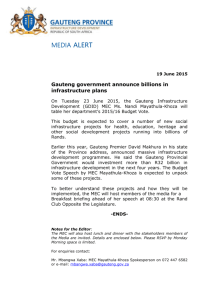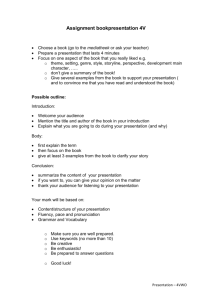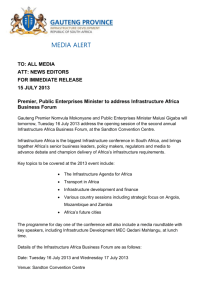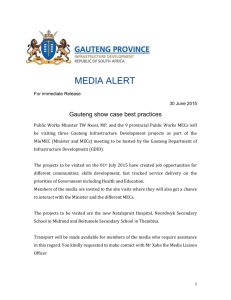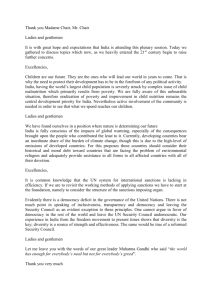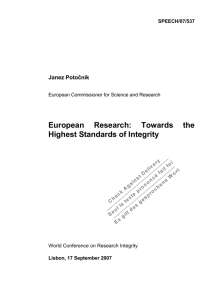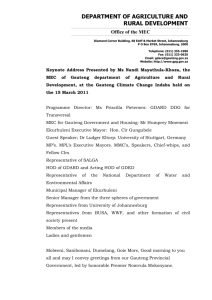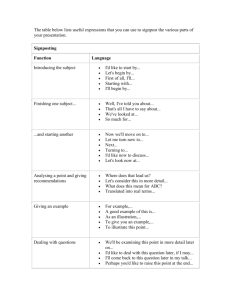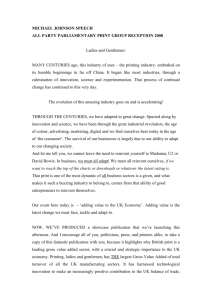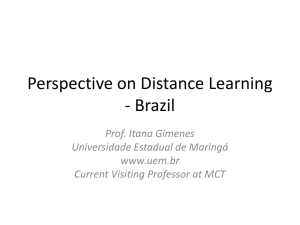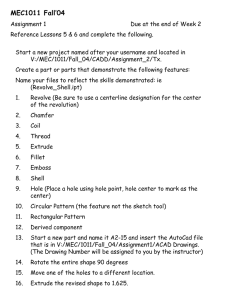MEC Nandi Mayathula Khoza speech at water leak event
advertisement
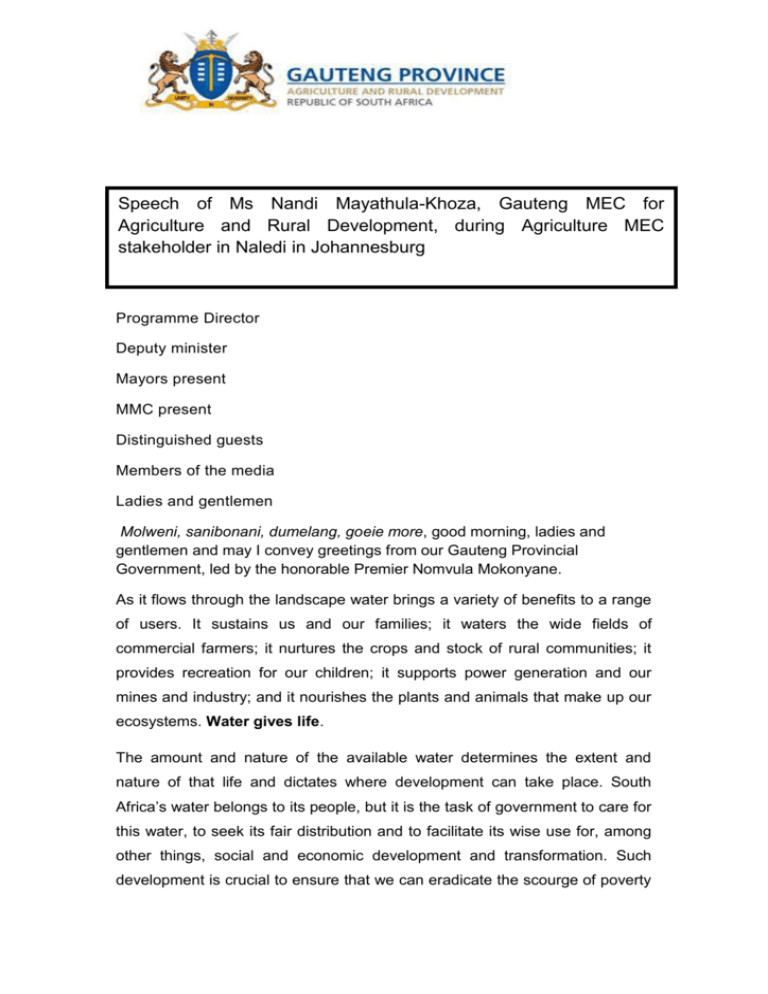
Speech of Ms Nandi Mayathula-Khoza, Gauteng MEC for Agriculture and Rural Development, during Agriculture MEC stakeholder in Naledi in Johannesburg Programme Director Deputy minister Mayors present MMC present Distinguished guests Members of the media Ladies and gentlemen Molweni, sanibonani, dumelang, goeie more, good morning, ladies and gentlemen and may I convey greetings from our Gauteng Provincial Government, led by the honorable Premier Nomvula Mokonyane. As it flows through the landscape water brings a variety of benefits to a range of users. It sustains us and our families; it waters the wide fields of commercial farmers; it nurtures the crops and stock of rural communities; it provides recreation for our children; it supports power generation and our mines and industry; and it nourishes the plants and animals that make up our ecosystems. Water gives life. The amount and nature of the available water determines the extent and nature of that life and dictates where development can take place. South Africa’s water belongs to its people, but it is the task of government to care for this water, to seek its fair distribution and to facilitate its wise use for, among other things, social and economic development and transformation. Such development is crucial to ensure that we can eradicate the scourge of poverty that stalks our land. Under apartheid, development benefited a small white minority while black townships and homelands were under-resourced and underdeveloped – these are the areas where poverty is most intense today. When the first democratically elected government came to power in our country in 1994, it put forward as its manifesto the Reconstruction and Development Programme. This initiative was based on the fundamental concept that people who are affected by decisions should take part in making them, and it set out five key programmes: 1) meeting basic needs; 2) developing our human resources; 3) democratising the State and society; 4) building the economy; and 5) Implementing the Reconstruction and Development Programme. Water is an essential ingredient in each of these programmes. The Constitution of the Republic of South Africa (1996) contains both our Bill of Rights and the framework for government in South Africa. Two provisions of the Bill of Rights are particularly relevant to the management of water resources. These are sections 27 and 24, which state thato Everyone has the right to have access to, among other rights, sufficient food and water, and the State must take reasonable legislative and other measures, within its available resources, to achieve the progressive realisation of these rights. o Everyone has the right to an environment that is not harmful to their health or wellbeing, and to have the environment protected, for the benefit of present and future generations, through reasonable legislative and other measures that prevent pollution and ecological degradation, promote conservation, and secure sustainable development and use of natural resources while promoting justifiable economic and social development. 2 Global research (OECD; Environmental Outlook 2050) indicates that around the world, cities, like the City of Tshwane, farmers, industries, energy suppliers, and ecosystems are increasingly competing for their daily water needs. The research indicates that without proper water management, the costs of this situation can be high, not just financially, but also in terms of lost opportunities, compromised health and environmental damage. Without considerable improvements in water management, which includes leak detection and repair, by 2050 the situation is likely to deteriorate, increasing uncertainty about water availability. Globally, it is estimated that water demand rose twice as fast as population growth in the last century. Increasing water demand will exacerbate water stress in many river basins, in particular in densely populated areas in rapidly developing economies, like ours, South Africa. Today, we meet for the launch of this very important project. The benefit of this project is to increase water efficiency and leakage reduction from water supply networks, a No Drop initiative will add to the already established Green Drop and Blue Drop to ensure future water security. Local research data from 132 (of 237 municipalities), representing 75% of the total volume of municipal water supply, show that that the current level of non-revenue (water of no economic value) water is estimated at 36.7%, of which 25.4% is considered to be losses through physical leakages. Lastly, leaks in the water network , even very small ones, not only waste a valuable commodity but they endanger people’s health by allowing bacteria, germs and other foreign bodies to enter the portable water supply. MEC supports the project. Working together we can do more! I thank you. 3
